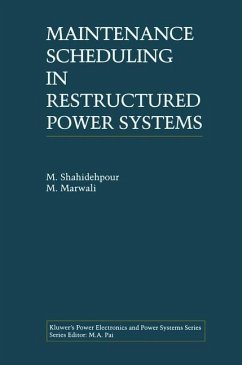
Control of Modern Integrated Power Systems

PAYBACK Punkte
38 °P sammeln!
In this comprehensive and systematically presented text, the various aspects of modern power system operation and control are discussed. Covered in the volume are: computer configurations and control aids, load-frequency control and automatic generation c ontrol, reactive power planning and scheduling procedure, security monitoring, and control under emergency conditions. Also presented are case study reports on power grid failures in different countries, examining how they occurred, how they were handled, and what lessons that they can provide. A "defence" plan against similar major disturban...
In this comprehensive and systematically presented text, the various aspects of modern power system operation and control are discussed. Covered in the volume are: computer configurations and control aids, load-frequency control and automatic generation c ontrol, reactive power planning and scheduling procedure, security monitoring, and control under emergency conditions. Also presented are case study reports on power grid failures in different countries, examining how they occurred, how they were handled, and what lessons that they can provide. A "defence" plan against similar major disturbances is detailed, including the overall system architecture adopted and the processing and communication sub-systems.














